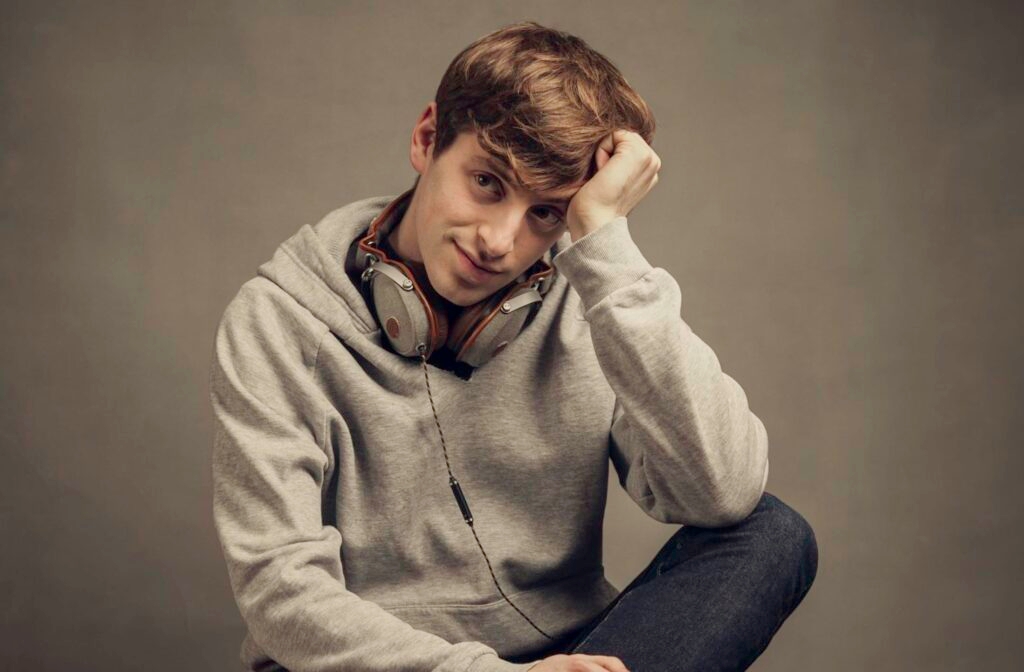This Jewish comedian has been helping rabbis nail the delivery on their High Holidays services
Published September 18, 2020

(JTA) — When the pandemic began, Alex Edelman was in the middle of a standup comedy tour of the United Kingdom, where he was performing a show based on his experience crashing a neo-Nazi meetup in Manhattan.
Six months later, the 31-year-old comedian was coaching rabbis about how to add humor and levity to their online High Holidays programming.
ADVERTISEMENT
“It’s been weird because my eyeball as someone who views TV and programming has become useful religiously, which is really strange,” Edelman told the Jewish Telegraphic Agency. “You never think, ‘I watch a lot of TV. That will really equip me to tell a rabbi how Rosh Hashanah and Yom Kippur should go. But it does.”
Edelman is among a crop of up-and-coming Jewish performers whose careers have been upended by the pandemic — and who have made lemonade by applying their craft to building Jewish community.
A native of suburban Boston and graduate of an Orthodox day school there, Edelman was a creator and head writer of “Saturday Night Seder,” the star-studded Passover spectacular that raised more than $3.5 million for the CDC Foundation in April.
“It was a true insane lightning-in-a-bottle moment,” he recalled. “All of us were craving the togetherness of Pesach, and to be able to have that in this time was … just wonderful.”
ADVERTISEMENT
So when the opportunity arose — brokered in part by Reboot, the organization that convenes and supports Jewish artists — to help synagogues adapt to the new world of online services, Edelman jumped. In recent weeks he worked with several Los Angeles rabbis planning what are essentially multi-hour television specials, where the content is Jewish liturgy and reflection but the pacing, production values and scripts all borrow from Hollywood.
“They’re having to turn the holidays into programming,” Edelman said. “It’s event-producing now and it’s very strange.”
He said the awe of the holy days cannot be fully communicated through a computer screen.
“But what you can do is create a sense of conversation and togetherness that is so central to the communal experience of any chag,” or holiday, he said.
That meant offering suggestions about where in the program the rabbis should pause to offer words of Torah that would heighten the drama rather than grind it to a halt; how to feature board members or others in the community without having to unmute them during the service; and ways to approximate the in-person connections that would happen in a typical year.
“Do you want to replicate the experience of shul on Rosh Hashanah?” Edelman asked. “Then how about offering five pieces of gossip?”
It didn’t hurt that the consulting generated some income at a time when all live gigs have been canceled. Edelman performed one show this summer outside in Central Park, but otherwise his schedule is empty.
“There’s nothing right now,” he said of the calendar on his website. “Seriously. Usually this page has stuff. It’s just a tough time.”
Edelman enjoyed a bit of a sideshow in recent weeks after he found himself roped into a bitter mayoral race on Long Island. The mayor of Lawrence, New York, is also named Alex Edelman, and this summer he faced a challenge from a real estate developer named Daniel Goldstein who had previously waged quixotic runs for Israel’s Knesset.
Alex Edelman, the comedian, had declined to wade in when he inevitably wound up being tagged on social media with complaints for Alex Edelman, the mayor. But in late August, after the 5 Towns Jewish Times ran an op-ed accusing the mayor of trying to suppress the vote, the comic decided to make a statement.
On Twitter, Edelman posted what he called “an insane statement” that confirmed the allegations.
“I have held this position since my predecessor died under mysterious circumstances in his aboveground pool,” he wrote in a note tapped out on his phone. “I have no intention of relinquishing it.”
To the comedian, the note was clearly a joke, an exaggerated imitation of the kind of statements often made by politicians facing criticism. But that’s not how it was received: Goldstein began circulating the statement on WhatsApp as evidence that the mayor was unfit for office.
“It’s kind of disgusting but don’t get me wrong, it’s also like the funniest thing in the world,” Edelman said. “I’m a bit annoyed at being used as literal fake news, but it’s also very funny.”
The campaign ended this week, with Mayor Edelman securing another term and comedian Edelman another statement.
“The numbers speak for themselves,” he quipped on Twitter. “I won with 125 percent of the vote.”
With that saga in the past, Edelman is focused on figuring out how to continue performing at a time when cramped comedy clubs, the most hospitable venue, must remain closed. Exactly what innovations lie ahead he isn’t sure, but he said comedy is a crucial tool for making it through this crisis whole.
“Commentary on what we’re living through is important when we’re not going through something crazy,” he said. “Comedy about the pandemic is even more important.”
This week, Edelman plans to tune into the services offered by IKAR, the nondenominational congregation that he has joined in Los Angeles. (Its founder and rabbi, Sharon Brous, featured prominently in “Saturday Night Seder,” and Edelman said seeing a woman in the pulpit was new for some of the show’s viewers.)
He said he’s looking forward to the searing resonance of the Unetaneh Tokef prayer, which wonders who will live and who will die in the year ahead and specifically invokes the specter of plague, and also to finding moments to laugh amid the weightiness of the holiday season.
“You need to keep things light in terms of helping along these services,” Edelman said. “It can’t just be a slog through prayer. We need a touch of humanity to help us along.”















